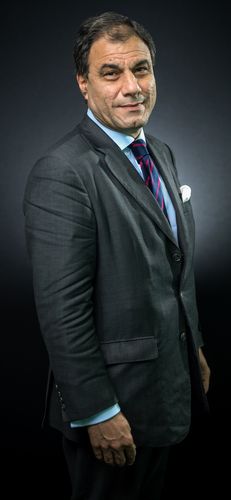Lord Karan Bilimoria spoke out in the House of Lords demanding an apology from the British government for the Jallianwala Bagh massacre. In a passionate speech on the floor, he quoted his 82-year-old mother: “It was murder.”
In an email interview with THE WEEK, he says: “Children in the UK need to learn about what happened [in Jallianwala Bagh] to ensure horrors like this do not take place.” Edited excerpts:
You demanded that the British government apologise for the Jallianwala Bagh massacre. Why do you feel that the time has come for an apology?
We must put this appalling atrocity in context. It led from World War I, in which more than one million Indians served and 74,000 made the ultimate sacrifice.
After the war, instead of some measure for self-government, they were rewarded with the punitive Rowlatt Act. This led to protests in Punjab in March and April 1919, after which the actions of General Reginald Dyer took place, with the backing of the lieutenant governor of Punjab, Sir Michael O’Dwyer....
The worst thing was that Dyer never showed any remorse or regret. In fact, he said that he had personally directed the fire towards the exits. He called the victims “the targets”, which were very “good” and forbade his soldiers from giving any aid to the wounded. He stopped the families from attending to these people for 24 hours. This was barbarism at its worst.
Later, on his return to Britain, he was rewarded with £26,000 from a public campaign and [was] presented with a jewelled sword of honour, whereas the poor families and the victims of the massacre were given Rs500 each.
It is time for the British government to apologise for this atrocity. The Canadian Prime Minister Justin Trudeau apologised in 2016 for Canada’s actions a century earlier, when the Indian immigrants on the SS Komagata Maru were denied permission to land in Vancouver, thereby sending many of them to their deaths. Why can Britain not do the same?
The debate in the House of Lords was a watershed moment. Its importance cannot be ignored, regardless of what the result is. Your comment.
In our debate in the House of Lords, I, along with other fellow peers, urged the government to make apologies. It would mean so much to the descendants of the victims, to Amritsar, to Punjab and to India. An apology would also go a long way towards strengthening bridges between Britain and India, and demonstrate the importance of the UK-India relationship today.
Baroness Goldie D.L. said that the issue was being ‘reflected’ on. Can we believe that an apology is likely? Do you think things are different this time round?
In closing our debate, Baroness Goldie said that she was listening and that she would convey our request for apology.
I then intervened and said: “Will the minister confirm she will say that we must make an apology on the centenary of this atrocity?”
And, the minister’s response was as follows: “I hope I have made the current position clear to noble Lords and I hope they will understand that I am unable to go any further. Learning lessons from the past is vital. It is also important that the UK and India continue to look ahead to our shared future. Happily and positively, today our relationship is one of equals.”
This was not good enough. What is needed is an outright apology by the British prime minister on April 13.
There is also a demand, as you mention in your speech, for incidents like this to be taught in school.
Children in the UK need to learn about what happened, to ensure horrors like this do not take place, and understand its role in the Indian independence movement.
In your speech, you mention how David Cameron issued an apology for Bloody Sunday—when British soldiers shot 28 unarmed protesters in Northern Ireland in 1972. But, in the case of Jallianwala Bagh, despite multiple demands, there has been no such apology.
I was with David Cameron on his India visit in 2013, where I was hopeful that he would apologise. But, he did not. He said that it was a “deeply shameful event”, but he did not apologise.
The mayor of London, Sadiq Khan, in 2017 called on the British government to make a full apology when he visited Amritsar. The government rejected that call!
Yet, Gordon Brown, as prime minister in 2010 apologised for the child migrant programme—where children were sent abroad for a ‘better life’, but were abused—that had happened 40 years earlier.
Also in 2010, David Cameron, who would not apologise in Amritsar three years later, gave a formal apology in the [House of] Commons on the day the Bloody Sunday report was published. He acknowledged that all those who died were unarmed when they were killed by British soldiers and that a British soldier had fired the first shot at civilians.
He said that, although it was not a premeditated action, there was “no point in trying to soften, or equivocate…. What happened should never, ever have happened”.
He apologised on behalf of the government by saying he was “deeply sorry”. Why can the British government not apologise now in the centenary year of the Jallianwala Bagh massacre?


